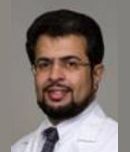Theme: Discovering Grey Zones in Gastroenterology & Endoscopy
Gastroenterology 2016
Track 1: Advances in Gastrointestinal Diseases
Short bowel syndrome (SBS)-associated intestinal failure is a highly disabling condition that impairs quality of life and social integration will be discussed in Gastroenterology conferences. Although the condition Gastrointestinal Bleeding is not uniformly fatal, it might lead to serious, life-threatening complications. The basic goals of medical treatment are reflux to maintain electrolyte, fluid, and nutrient balances and to make modifications in disease management in order to avoid side effects. Various definitions have been proposed for SBS and intestinal failure within the medical literature, but many focus on different aspects of the conditions, leading to confusion. In the past, identifying the cause of intestinal failure was of little consequence, because all patients were managed on total parenteral nutrition at home. However, with the recent development of medical therapies such as recombinant growth hormone, octreotide, and glucagon-like peptide-2 analogues and with improvements in small bowel transplantation, many patients can be made nutritionally autonomous. To evaluate the relative efficacy of these therapies, patients can be properly categorized before therapy there is now a need to develop consensus definitions. Teduglutide, a glucagon-like peptide 2 analogue, might restore intestinal structural and functional integrity by promoting growth of the mucosa and reducing gastric emptying and secretion. These factors could increase fluid and nutrient absorption in patients with short bowel syndrome with intestinal failure (SBS-IF). Gastrointestinal disorders encompass Crohn’s disease, Gastric Cancer and ulcerative colitis, celiac disease, diverticulitis, irritable bowel syndrome, constipation, diarrhea, gastritis and Gastroesophageal reflux, food allergies, parasites, dysbiosis, and a number of less common entities. Patients may present with abdominal pain, cramps, gas, bloating, food intolerances, or changes in bowel habits. There are often additional symptoms such as fatigue, Digestive Enzymes Muscle and joint pains, headaches, memory and other cognitive problems, depression, insomnia and reduced libido.
Related Conferences:
7th Gastroenterology and Gastroenterologists Annual Meeting September 12-14, 2016 Atlanta, USA; 3rd World Congress on Hepatitis and Liver Diseases Conference, October 17-19, 2016, UAE; 8th International Conference on Clinical Gastroenterology & Hepatology, September 29-October 1, 2016 Toronto, Canada; 2nd International Conference on Hepatology, May 09-11, 2016, USA; International Conference on Digestive Diseases December 08-09, 2016 Dubai, UAE; 31st Annual New Treatments in Chronic Liver Disease, March 19-20, 2016, La Jolla, USA; (AHPBA) 2017 Annual Meeting, March 29-April 2, 2017, Miami, Florida; Mayo Clinic Gastroenterology and Hepatology, February 25-28, 2016, Arizona, USA; 2016 Gastrointestinal Cancer Symposium, January 21-23, 2016, San Francisco, USA, National Liver Conference, September 18, 2015, Fort Worth, USA; American Gastroenterological Association, American Society for Gastrointestinal Endoscopy (ASGE), North American Society for Pediatric Gastroenterology, European gastroenterology society, British Society of Gastroenterology; American Pancreatic Association
Track 2: Gastrointestinal Oncology
Surgeons are continuing to improve their techniques for operating on colorectal cancers. They now have a better understanding of what makes colorectal surgery more likely to be successful, such as making sure enough lymph nodes are removed during the operation. Laparoscopic surgery is done through Gastrointestinal Hormones several small incisions in the abdomen instead of one large one, and it's becoming more widely used for some colon cancers. This approach usually allows patients to recover faster, with less pain after the operation. Gastroenterology have Laparoscopic surgery is also being studied for treating some rectal cancers, but more research is needed to see if it as effective as standard surgery. With robotic surgery, a surgeon sits at a control panel and Digestive Enzymes operates very precise robotic arms to perform the surgery. This type of surgery is also being studied.
Related Conferences:
7th Gastroenterology and Gastroenterologists Annual Meeting September 12-14, 2016 Atlanta, USA; 3rd World Congress on Hepatitis and Liver Diseases Conference, October 17-19, 2016, UAE; 8th International Conference on Clinical Gastroenterology & Hepatology, September 29-October 1, 2016 Toronto, Canada; 2nd International Conference on Hepatology, May 09-11, 2016, USA; International Conference on Digestive Diseases December 08-09, 2016 Dubai, UAE; 31st Annual New Treatments in Chronic Liver Disease, March 19-20, 2016, La Jolla, USA; (AHPBA) 2017 Annual Meeting, March 29-April 2, 2017, Miami, Florida; Mayo Clinic Gastroenterology and Hepatology, February 25-28, 2016, Arizona, USA; 2016 Gastrointestinal Cancer Symposium, January 21-23, 2016, San Francisco, USA, National Liver Conference, September 18, 2015, Fort Worth, USA; American Gastroenterological Association, American Society for Gastrointestinal Endoscopy (ASGE), North American Society for Pediatric Gastroenterology, European gastroenterology society, British Society of Gastroenterology; American Pancreatic Association
Track 3: Gastrointestinal Surgery
Endoscopy lets your doctor examine the lining of the middle part of your gastrointestinal tract, which includes the three portions of the small intestine (duodenum, jejunum, ileum). Your doctor will give you a pill sized video camera for you to swallow. This camera has its own light source and takes pictures of your small intestine as it passes through. These pictures are sent to a small recording device you have to wear on your body. Capsule endoscopy and Gastrointestinal Tuberculosis helps your doctor evaluate the small intestine. This part of the bowel cannot be reached by traditional upper endoscopy or by colonoscopy. The most common reason for doing capsule endoscopy is to search for a cause of bleeding from the small intestine.
Related Conferences:
7th Gastroenterology and Gastroenterologists Annual Meeting September 12-14, 2016 Atlanta, USA; 3rd World Congress on Hepatitis and Liver Diseases Conference, October 17-19, 2016, UAE; 8th International Conference on Clinical Gastroenterology & Hepatology, September 29-October 1, 2016 Toronto, Canada; 2nd International Conference on Hepatology, May 09-11, 2016, USA; International Conference on Digestive Diseases December 08-09, 2016 Dubai, UAE; 31st Annual New Treatments in Chronic Liver Disease, March 19-20, 2016, La Jolla, USA; (AHPBA) 2017 Annual Meeting, March 29-April 2, 2017, Miami, Florida; Mayo Clinic Gastroenterology and Hepatology, February 25-28, 2016, Arizona, USA; 2016 Gastrointestinal Cancer Symposium, January 21-23, 2016, San Francisco, USA, National Liver Conference, September 18, 2015, Fort Worth, USA; American Gastroenterological Association, American Society for Gastrointestinal Endoscopy (ASGE), North American Society for Pediatric Gastroenterology, European gastroenterology society, British Society of Gastroenterology; American Pancreatic Association
Track 4: Advances in Liver Diseases
You can get alcoholic liver disease from drinking lots of alcohol. It can even show up after a short period of heavy drinking. Genes that are passed down from your parents may also play a role in ALD. They can affect the chances that you become an alcoholic. And they can also have an impact on the way your body breaks down the alcohol you drink. Other things that may affect your chance of getting ALD are:- Hepatitis C (which can lead to inflammation in your liver) Gall Bladder Too much iron in your body and Being obese this infection of the liver is caused by the hepatitis C virus. About 3.2 million people in the U.S. have the disease. But it causes few symptoms, so most of them don't know. There are many forms of the hepatitis C virus like Stomach Ulcer. The most common in the U.S. is type 1. None is more serious than any other, but they respond differently to treatment. The virus spreads through the blood or body fluids of an infected person. You can catch it from: Sharing drugs and needles Having sex, especially if you have an STD, an HIV infection, several partners, or have rough sex, Being stuck by infected needles, Birth -- a mother can pass it to a child. About 75% to 85% of people who have it develop a long-term infection called chronic hepatitis C.
Related Conferences:
7th Gastroenterology and Gastroenterologists Annual Meeting September 12-14, 2016 Atlanta, USA; 3rd World Congress on Hepatitis and Liver Diseases Conference, October 17-19, 2016, UAE; 8th International Conference on Clinical Gastroenterology & Hepatology, September 29-October 1, 2016 Toronto, Canada; 2nd International Conference on Hepatology, May 09-11, 2016, USA; International Conference on Digestive Diseases December 08-09, 2016 Dubai, UAE; 31st Annual New Treatments in Chronic Liver Disease, March 19-20, 2016, La Jolla, USA; (AHPBA) 2017 Annual Meeting, March 29-April 2, 2017, Miami, Florida; Mayo Clinic Gastroenterology and Hepatology, February 25-28, 2016, Arizona, USA; 2016 Gastrointestinal Cancer Symposium, January 21-23, 2016, San Francisco, USA, National Liver Conference, September 18, 2015, Fort Worth, USA; American Gastroenterological Association, American Society for Gastrointestinal Endoscopy (ASGE), North American Society for Pediatric Gastroenterology, European gastroenterology society, British Society of Gastroenterology; American Pancreatic Association
Track 5: Gastrointestinal Immunology
The gastrointestinal tract (GI tract) plays dual roles in Gastrointestinal Pathology: digestion and uptake of nutrients and the more daunting task of maintaining immune homeostasis (protecting the body from potentially harmful microbes, while inducing tolerogenic responses to innocuous food, commensals and self-antigens). The unique architecture of the GI tract and Viral hepatitis facilitates both of these functions; multiple levels of infolding results in an immense overall surface area that allows maximal nutrient absorption while housing the largest number of immune cells in the body. As many pathogens enter the body via the intestinal mucosa, it is vital the gut-associated lymphoid tissues can provide effective immune responses when necessary. However, inappropriate responses against innocuous food and commensal antigens lead to inflammatory disorders such as coeliac disease and inflammatory bowel disease (IBD) and Intestinal Surgery.
Related Conferences:
7th Gastroenterology and Gastroenterologists Annual Meeting September 12-14, 2016 Atlanta, USA; 3rd World Congress on Hepatitis and Liver Diseases Conference, October 17-19, 2016, UAE; 8th International Conference on Clinical Gastroenterology & Hepatology, September 29-October 1, 2016 Toronto, Canada; 2nd International Conference on Hepatology, May 09-11, 2016, USA; International Conference on Digestive Diseases December 08-09, 2016 Dubai, UAE; 31st Annual New Treatments in Chronic Liver Disease, March 19-20, 2016, La Jolla, USA; (AHPBA) 2017 Annual Meeting, March 29-April 2, 2017, Miami, Florida; Mayo Clinic Gastroenterology and Hepatology, February 25-28, 2016, Arizona, USA; 2016 Gastrointestinal Cancer Symposium, January 21-23, 2016, San Francisco, USA, National Liver Conference, September 18, 2015, Fort Worth, USA; American Gastroenterological Association, American Society for Gastrointestinal Endoscopy (ASGE), North American Society for Pediatric Gastroenterology, European gastroenterology society, British Society of Gastroenterology; American Pancreatic Association
Track 6: Clinical Nutrition in Gastrointestinal Disease
Nutrition is important in the management of gastrointestinal disease because the job of the intestinal track is to digest and absorb nutrients. The therapeutic approach to most gastrointestinal problems involves a combination of medication and nutritional therapy. Gastrointestinal disease can be broadly characterized as acute and chronic. Acute gastrointestinal conditions are most commonly caused by dietary indiscretion or the exacerbation of chronic gastrointestinal disease. Chronic gastrointestinal disease is frequently associated with a diagnosis of inflammatory bowel disease, an adverse food reaction or colitis.
Related Conferences:
7th Gastroenterology and Gastroenterologists Annual Meeting September 12-14, 2016 Atlanta, USA; 3rd World Congress on Hepatitis and Liver Diseases Conference, October 17-19, 2016, UAE; 8th International Conference on Clinical Gastroenterology & Hepatology, September 29-October 1, 2016 Toronto, Canada; 2nd International Conference on Hepatology, May 09-11, 2016, USA; International Conference on Digestive Diseases December 08-09, 2016 Dubai, UAE; 31st Annual New Treatments in Chronic Liver Disease, March 19-20, 2016, La Jolla, USA; (AHPBA) 2017 Annual Meeting, March 29-April 2, 2017, Miami, Florida; Mayo Clinic Gastroenterology and Hepatology, February 25-28, 2016, Arizona, USA; 2016 Gastrointestinal Cancer Symposium, January 21-23, 2016, San Francisco, USA, National Liver Conference, September 18, 2015, Fort Worth, USA; American Gastroenterological Association, American Society for Gastrointestinal Endoscopy (ASGE), North American Society for Pediatric Gastroenterology, European gastroenterology society, British Society of Gastroenterology; American Pancreatic Association
Track 7: Endourology- Clinical Update
Flexible Ureterorenoscopy (FURS) is a preferred treatment for small stones within the kidney using a very thin flexible telescope that can be passed up from the female urethra or end of penis in a man, into the bladder and up the ureter (tube connecting the kidney to the bladder. With advancement in technology, improvement in endoscope and ancillary equipment, more complex procedures can be performed using flexible ureterorenoscopy. Advanced laparoscopic surgery involves surgery that is minimally invasive, using advanced surgical technologies to assist in surgery, providing the most desired patient outcome. Urology events minimally Invasive Surgery uses surgical techniques that only require 3-4 small ½” incisions, decreases blood loss, and encourages a shorter length of stay as well as a quicker patient recovery time.
Related Conferences:
7th Gastroenterology and Gastroenterologists Annual Meeting September 12-14, 2016 Atlanta, USA; 3rd World Congress on Hepatitis and Liver Diseases Conference, October 17-19, 2016, UAE; 8th International Conference on Clinical Gastroenterology & Hepatology, September 29-October 1, 2016 Toronto, Canada; 2nd International Conference on Hepatology, May 09-11, 2016, USA; International Conference on Digestive Diseases December 08-09, 2016 Dubai, UAE; 31st Annual New Treatments in Chronic Liver Disease, March 19-20, 2016, La Jolla, USA; (AHPBA) 2017 Annual Meeting, March 29-April 2, 2017, Miami, Florida; Mayo Clinic Gastroenterology and Hepatology, February 25-28, 2016, Arizona, USA; 2016 Gastrointestinal Cancer Symposium, January 21-23, 2016, San Francisco, USA, National Liver Conference, September 18, 2015, Fort Worth, USA; American Gastroenterological Association, American Society for Gastrointestinal Endoscopy (ASGE), North American Society for Pediatric Gastroenterology, European gastroenterology society, British Society of Gastroenterology; American Pancreatic Association
Track 8: Neurourology & Urodynamics
Neurourology is the study of how the nervous system affects the urinary system. The brain, spinal cord and nerves are very important to the healthy function of the bladder. Neurological diseases and disorders such as multiple sclerosis, Parkinson's disease, stroke and spinal cord injury can disrupt the lower urinary tract and result in conditions such as urinary incontinence and the inability to urinate. Birth conditions such as spina bifida also cause neurological dysfunction of bladder control. Neurogenic bladder is a term applied to a malfunctioning urinary bladder due to neurologic dysfunction or injury. Urodynamic testing is any procedure that looks at how well the bladder, sphincters, and urethra are storing and releasing urine. Most urodynamic tests focus on the bladder’s ability to hold urine and empty steadily and completely.
Related Conferences:
7th Gastroenterology and Gastroenterologists Annual Meeting September 12-14, 2016 Atlanta, USA; 3rd World Congress on Hepatitis and Liver Diseases Conference, October 17-19, 2016, UAE; 8th International Conference on Clinical Gastroenterology & Hepatology, September 29-October 1, 2016 Toronto, Canada; 2nd International Conference on Hepatology, May 09-11, 2016, USA; International Conference on Digestive Diseases December 08-09, 2016 Dubai, UAE; 31st Annual New Treatments in Chronic Liver Disease, March 19-20, 2016, La Jolla, USA; (AHPBA) 2017 Annual Meeting, March 29-April 2, 2017, Miami, Florida; Mayo Clinic Gastroenterology and Hepatology, February 25-28, 2016, Arizona, USA; 2016 Gastrointestinal Cancer Symposium, January 21-23, 2016, San Francisco, USA, National Liver Conference, September 18, 2015, Fort Worth, USA; American Gastroenterological Association, American Society for Gastrointestinal Endoscopy (ASGE), North American Society for Pediatric Gastroenterology, European gastroenterology society, British Society of Gastroenterology; American Pancreatic Association
Track 9: Urologic Oncology
Renal cell cancer (also called kidney cancer or renal adenocarcinoma) is a disease in which malignant (cancer) cells are found in the lining of tubules (very small tubes) in the kidney. There are 2 kidneys, one on each side of the backbone, above the waist. Tiny tubules in the kidneys filter and clean the blood. They take out waste products and make urine. The urine passes from each kidney through a long tube called a ureter into the bladder. The bladder holds the urine until it passes through the urethra and leaves the body. Surgery to remove of all or part of the kidney (nephrectomy) is recommended. This may include removing the bladder, surrounding tissues, or lymph nodes. A cure is unlikely unless all of the cancer is removed with surgery. But even if some cancer is left behind, patients can still benefit from surgery. Transitional cell carcinoma of the renal pelvis, accounting for only 7% of all kidney tumors, and transitional cell cancer of the ureter, accounting for only 1 of every 25 upper tract tumors, are curable in more than 90% of patients if they are superficial and confined to the renal pelvis or ureter. Patients with deeply invasive tumors that are still confined to the renal pelvis or ureter have a 10% to 15% likelihood of cure. Patients with tumors with penetration through the Urothelial wall or with distant metastases usually cannot be cured with currently available forms of treatment.
Related Conferences:
7th Gastroenterology and Gastroenterologists Annual Meeting September 12-14, 2016 Atlanta, USA; 3rd World Congress on Hepatitis and Liver Diseases Conference, October 17-19, 2016, UAE; 8th International Conference on Clinical Gastroenterology & Hepatology, September 29-October 1, 2016 Toronto, Canada; 2nd International Conference on Hepatology, May 09-11, 2016, USA; International Conference on Digestive Diseases December 08-09, 2016 Dubai, UAE; 31st Annual New Treatments in Chronic Liver Disease, March 19-20, 2016, La Jolla, USA; (AHPBA) 2017 Annual Meeting, March 29-April 2, 2017, Miami, Florida; Mayo Clinic Gastroenterology and Hepatology, February 25-28, 2016, Arizona, USA; 2016 Gastrointestinal Cancer Symposium, January 21-23, 2016, San Francisco, USA, National Liver Conference, September 18, 2015, Fort Worth, USA; American Gastroenterological Association, American Society for Gastrointestinal Endoscopy (ASGE), North American Society for Pediatric Gastroenterology, European gastroenterology society, British Society of Gastroenterology; American Pancreatic Association
Track 10: Pediatric Gastroenterology and Urology
Hypospadias (hi-poe-SPAY-dee-us) is a condition in which the opening of the urethra is on the underside of the penis, instead of at the tip. The urethra is the tube through which urine drains from your bladder and exits your body. You may feel distressed if your son is born with hypospadias. However, hypospadias is common and doesn't cause difficulty in caring for your infant. In fact, surgery usually restores the normal appearance of your child's penis. With successful treatment of hypospadias, most males can eventually have normal adult sexual function. Surgery is usually done before the child starts school. Today, most urologists recommend repair before the child is 18 months old. Surgery can be done as young as 4 months old. During the surgery, the penis is straightened and the opening is corrected using tissue grafts from the foreskin. The repair may require multiple surgeries. Kidney stones are a common cause of blood in the urine and pain in the abdomen, flank, or groin. Kidney stones occur in 1 in 20 people at some time in their life. Very simply stated, urinary incontinence is defined as the loss of complete control of the act of urination or the involuntary emptying of the bladder. It is also referred to as enuresis. It can be caused by any number of factors, and in young infants and toddlers, it is usually completely normal. In order to understand the different causes better, one must have some basic understanding of processes involved in urination.
Related Conferences:
7th Gastroenterology and Gastroenterologists Annual Meeting September 12-14, 2016 Atlanta, USA; 3rd World Congress on Hepatitis and Liver Diseases Conference, October 17-19, 2016, UAE; 8th International Conference on Clinical Gastroenterology & Hepatology, September 29-October 1, 2016 Toronto, Canada; 2nd International Conference on Hepatology, May 09-11, 2016, USA; International Conference on Digestive Diseases December 08-09, 2016 Dubai, UAE; 31st Annual New Treatments in Chronic Liver Disease, March 19-20, 2016, La Jolla, USA; (AHPBA) 2017 Annual Meeting, March 29-April 2, 2017, Miami, Florida; Mayo Clinic Gastroenterology and Hepatology, February 25-28, 2016, Arizona, USA; 2016 Gastrointestinal Cancer Symposium, January 21-23, 2016, San Francisco, USA, National Liver Conference, September 18, 2015, Fort Worth, USA; American Gastroenterological Association, American Society for Gastrointestinal Endoscopy (ASGE), North American Society for Pediatric Gastroenterology, European gastroenterology society, British Society of Gastroenterology; American Pancreatic Association
We invite gastroenterology expertise, researchers, professors, scientific communities, therapists, counselors, delegates, students, business professionals and executives to attend the 7th Global Congress on Gastroenterology & Endoscopy which is going to be held on September 12-14, 2016 at Atlanta, USA which includes prompt keynote presentations, Oral talks, Poster presentations and Exhibitions
There are Approx. of 60 universities in San Antonio out of 600 universities in USA which are into Gastroenterology research. 60 to 70 million people are affected by all digestive diseases, 245,921 deaths have been recorded till date in USA. There are total 1585 Hospitals in USA. In 2004, there were 4,396 deaths with a GI infection. The large majority of these deaths occurred among persons age 65 years and older. The death rate among whites was 50 percent higher than that among blacks, and the rates were similar among females and males. Similar patterns were seen for GI infections as either underlying or contributing cause. Because the majority of deaths occurred in the elderly, the YPLL prior to age 75 years was small, less than 3 years per death. In recent years, there has been a remarkable increase in deaths from GI infections.
Gastroenterology is a branch of medicine focused on the digestive system and its disorders. The practice of gastroenterology concentrates on the diagnosis and treatment of diseases involving the esophagus, stomach, small intestine and large intestine (colon), liver, gallbladder, and pancreas. Gastroesophageal reflux disease (GERD) is repeating indigestion initiated by the vicinity of stomach corrosive in the throat, which regularly causes esophageal harm. Irritable Bowel Syndrome (IBS) is a basic issue that influences your digestive organ (colon). Bad tempered entrail syndrome usually causes cramping, stomach ache, bloating gas, looseness of the bowels and clogging. Cirrhosis is scarring of the liver initiated by numerous types of liver illnesses and conditions, for example, hepatitis and ceaseless liquor misuse. Testicular Cancer is disease that creates in the testicles, a part of the male reproductive system. It is the most widely recognized disease in males aged 20–39 years. Testicular growth has one of the most elevated cure rates of all growths.
There are Approx. of 60 universities in San Antonio out of 600 universities in USA which are into Gastroenterology research. 60 to 70 million people are affected by all digestive diseases, 245,921 deaths have been recorded till date in USA. There are total 1585 Hospitals in USA. In 2004, there were 4,396 deaths with a GI infection. The large majority of these deaths occurred among persons age 65 years and older. The death rate among whites was 50 percent higher than that among blacks, and the rates were similar among females and males. Similar patterns were seen for GI infections as either underlying or contributing cause. Because the majority of deaths occurred in the elderly, the YPLL prior to age 75 years was small, less than 3 years per death. In recent years, there has been a remarkable increase in deaths from GI infections.
Importance & Scope:
Most aspects of business depend on successful marketing. The overall marketing umbrella covers advertising, public relations, promotions and sales. Marketing is a process by which a product or service is introduced and promoted to potential customers. Gastroenterology-2015 aims to bring together leading academic scientists, researchers and research scholars to exchange and share their experiences and research results about all aspects of Gastroenterology. It also provides the chance for researchers, practitioners and educators to present and discuss the most recent innovations, trends, and concerns, practical challenges encountered and the solutions adopted in the fields of Gastroenterology.
Gastroenterology-2015 is an international platform for presenting research about Internal Medicine, exchanging ideas about it and thus, contributes to the dissemination of knowledge for the benefit of both the academia and business. Gastroenterology-2015 is where the future of Gastroenterology intersects. This event brings together Presidents and Eminent Personalities to explore opportunities on emerging platforms.
Why Atlanta?
Nowadays the vibrant city is modernized yet still pieces of history are evident. If you would like to visit either for business or holidays, there is a huge variety of holiday accommodation to choose from and compare with from leading five star hotels to budget motels. Spoil yourself in the exciting range of restaurants and visit attractions to get a real classic feel of the place. Pennsylvania is a great place to start a business, it's one of the most business friendly states in the US. It offers easy access to capital, low tax rate, and numerous colleges and universities so access to top quality brain power is easy.
Conference Highlights:
- Advances In Gastrointestinal Diseases
- Gastrointestinal Oncology
- Gastrointestinal Surgery
- Advances In Liver Diseases
- Gastrointestinal Immunology
- Clinical Nutrition In Gastrointestinal Diseases
- Endourology -Clinical Update
- Neurourology And Urodynamics
- Urologic Oncology
- Pediatric Urology
- Gastro-Intestinal Tract Imaging
Why to attend???
Meet Your Target Market With members from around the world focused on learning about Gastroenterology; this is your single best opportunity to reach the largest assemblage of participants from the Gastroenterology community. Conduct demonstrations, distribute information, meet with current and potential customers, make a splash with a new product line, and receive name recognition at this 3-day event. World-renowned speakers, the most recent techniques, tactics, and the newest updates in Gastroenterology fields are hallmarks of this conference.
A Unique Opportunity for Advertisers and Sponsors at this International event:
http://gastroenterology.conferenceseries.com/sponsors.php
Major Analysis of Gastroenterology Conference
Figure 1: Companies and Associations
Target Audience:
Directors/ Managers & Business Intelligence Experts, Departmental Managers, Vice Presidents/ Directors & Brand Manufacturers/ Marketers of Consumer Products. Retailers, Marketing, Advertising and Promotion Agency Executives, Solution Providers (digital and mobile technology, P-O-P design, retail design, and retail execution), Professors and Students from Academia in the study of Gastroenterology.
Target Audience:
Industry 20%
Academia 70%
Others 10%
Figure 2: Target Audience
Top Medical School of Gastroenterology in USA:
- Harvard University
- Stanford University
- University of California, Los Angeles (UCLA)
- Johns Hopkins University
- Yale University
- University of California, San Francisco
- University of Pennsylvania
- Columbia University
- Duke University
- Massachusetts Institute of Technology (MIT)
Source Reference1
Top 10 Hospitals of Gastroenterology in USA:
- Mayo Clinic
- Cleveland Clinic
- Massachusetts General Hospital
- Johns Hopkins Hospital
- UCLA Medical Center
- Cedars-Sinai Medical Center
- UPMC-University of Pittsburgh Medical Center
- New York-Presbyterian University Hospital of Columbia and Cornell
- Mount Sinai Hospital
- Hospitals of the University of Pennsylvania-Penn Presbyterian
Source Reference1
Universities and Hospitals in USA:
Figure 3: No. of Universities and Hospitals
Source Reference1
Patients suffering from Digestive Disorder in Different Countries
Figure 4: No. of Patients
Source Reference1
References:
- http://health.usnews.com/best-hospitals/rankings/gastroenterology-and-gi-surgery
- http://grad-schools.usnews.rankingsandreviews.com/best-graduate-schools/top-medical-schools/research-rankings
- http://health.usnews.com/best-hospitals/rankings/gastroenterology-and-gi-surgery?page=159
- http://www.worldgastroenterology.org/major-meetings.html
- http://digestive.niddk.nih.gov/statistics/statistics.aspx
Conference Highlights
- Advances in Gastrointestinal Diseases
- Gastroenterology: Current and Novel Approach
- Gastroenterology: Clinical and Diagnostics
- Treatment or Therapy
- Gastroenteritis and associated Diseases
- Gastrointestinal Oncology
- Gastrointestinal Surgery
- Advances in Liver Diseases
- Clinical Nutrition in Gastrointestinal Disease
- Recent Advances in Inflammatory bowel disease (IBD) Trearment
- Emerging Therapies for Viral Hepatitis and Liver Fibrosis
- GI Bleeding
- Endoscopy
- Endoscopy and Diagnosis
- Endoscopy and Treatment
- GI Endoscopy
- Colonoscopy
- Endoscopic Procedures and Surgeries
To share your views and research, please click here to register for the Conference.
To Collaborate Scientific Professionals around the World
| Conference Date | September 12-14, 2016 | ||
| Sponsors & Exhibitors |
|
||
| Speaker Opportunity Closed | Day 1 | Day 2 | Day 3 |
| Poster Opportunity Closed | Click Here to View | ||
Special Issues
All accepted abstracts will be published in respective Our International Journals.
- Journal of Gastrointestinal and Digestive System
- Journal of Liver
- Journal of Medical and Surgical Urology
Abstracts will be provided with Digital Object Identifier by
















